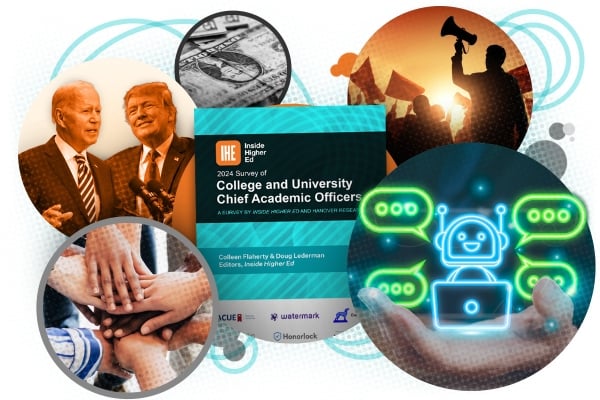The annual Provosts’ Survey, conducted by higher education consulting firm MHEC, has revealed some concerning trends in the world of academia. This year, the survey focused on the growing presence of artificial intelligence (AI) on campus and the ongoing debate over free speech and censorship.
One of the key findings of the survey was the need for clear policies regarding the use of AI technology on campus. As AI becomes more integrated into everyday life, universities are increasingly turning to these advanced systems for tasks such as grading, student advising, and campus security. However, many provosts expressed concerns about the ethical implications of using AI in these contexts.
Provosts cited worries about data privacy, algorithmic bias, and the potential for AI to replace human workers. In response to these concerns, many universities are now working to develop comprehensive AI policies that address these issues and ensure that AI is used in a responsible and transparent manner.
Another hot-button issue highlighted in the survey was the ongoing debate over free speech on college campuses. Provosts reported an increase in incidents of censorship, cancel culture, and threats to academic freedom. They expressed concern that these trends could have a chilling effect on open discourse and intellectual inquiry.
Provosts emphasized the need for universities to strike a balance between protecting free speech and creating a safe and inclusive campus environment. Many are actively working to facilitate constructive dialogue and debate, while also ensuring that marginalized voices are heard and respected.
Overall, the annual Provosts’ Survey has shed light on the challenges and opportunities facing higher education in the digital age. As AI technology continues to advance and debates over free speech rage on, provosts are taking proactive steps to ensure that their campuses remain centers of learning, innovation, and free expression. By developing clear policies and fostering a culture of open dialogue, universities can navigate these complex issues and continue to uphold their mission of education and research.


